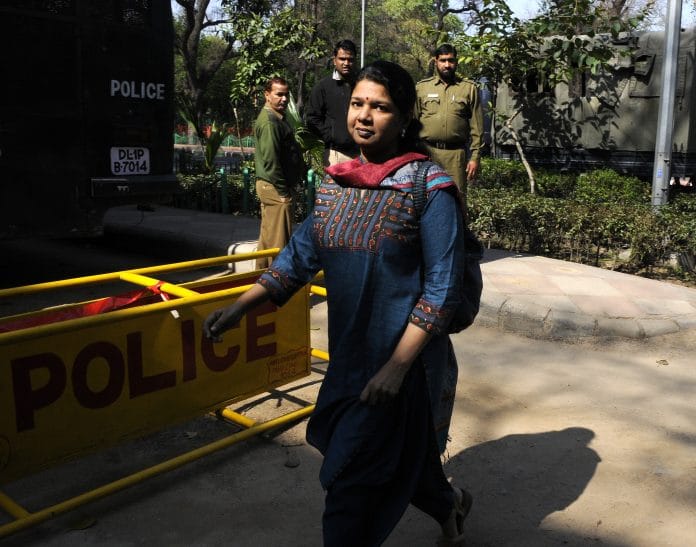Prominent faces in the DMK are being cleared of corruption charges and this could help the party in 2019.
New Delhi: With the CBI moving the Delhi High Court challenging the acquittal of former telecom minister A. Raja, Rajya Sabha MP Kanimozhi and others in the 2G spectrum allocation scam case, the high-profile DMK leaders will soon be back in the limelight.
But, until the high court decides the matter – and until the eventuality of it overturning the CBI court’s judgment – these leaders will have a smooth run. It will also give a breather to their party, which seems to be finally getting its act together, especially after a slew of legal reprieves for its top leaders in various cases, especially those related to alleged corruption.
DMK and its regional allies had 11 ministerial positions in the central government between 2004 and 2013, and eight of these ministers were accused of various illegal actions.
The DMK, a decade-long Congress ally, failed to secure even a single seat in Tamil Nadu in the 2014 Lok Sabha elections and lost the assembly elections in 2016. Many observers attributed the losses to corruption allegations against its leaders.
But in the run-up to 2019 general elections, the party’s prominent faces are being cleared of the charges.
The latest is the recent acquittal of former telecom minister Dayanidhi Maran in a five-year-old corruption case in which he was accused of misusing ministerial powers by giving 323 BSNL phone connections to his family-owned Sun TV network.
Last year, a CBI court also discharged Maran and two of his family members of money laundering charges in the Aircel-Maxis case. The cabinet rank minister had to quit unceremoniously, the same way his predecessor A. Raja did.
While acquitting Raja and Kanimozhi in the 2G spectrum allocation in December last year, the special CBI court had said that the prosecution “miserably failed” to prove the charges against either of them.
Raja, whom the opposition had attacked as being the face of UPA’s “corrupt regime”, had spent over 14 months in jail before he was released on bail in 2012.
Another UPA minister, S. Jagathrakshakan, was accused of currying favours to get a coal block allocation for a company owned by his family. However, the CBI did not press charges against him.
“Politically, this clean chit gives DMK a greater mileage when it goes to polls in 2019 but the real test is to see if people will buy this squeaky clean image,” said Kalyan Arun, a political analyst based in Chennai.
He added that DMK leaders being acquitted in the 2G case not only boosts the image of party but also of its allies.
Two key former ministers are also fighting legal battles but they are now irrelevant to the DMK.
PMK leader Anbumani Ramadoss is facing two separate cases of corruption. A special CBI court in Delhi is likely to frame charges against him. Allegations pertain to granting permissions illegally to two medical colleges in Uttar Pradesh and Madhya Pradesh during his tenure as health minister. However, Ramdoss’s party has distanced itself from the DMK and sided with the BJP for 2014 parliamentary elections. But in 2016, the party went to the state polls independently.
M.K. Alagiri, DMK patriarch Karunanidhi’s eldest son, is facing charges of land grabbing. The Tamil Nadu government has appealed against Alagiri’s acquittal in the 2003 murder of a former state minister. The former parliamentarian is also not of concern to DMK as he was expelled from the party in 2014.






